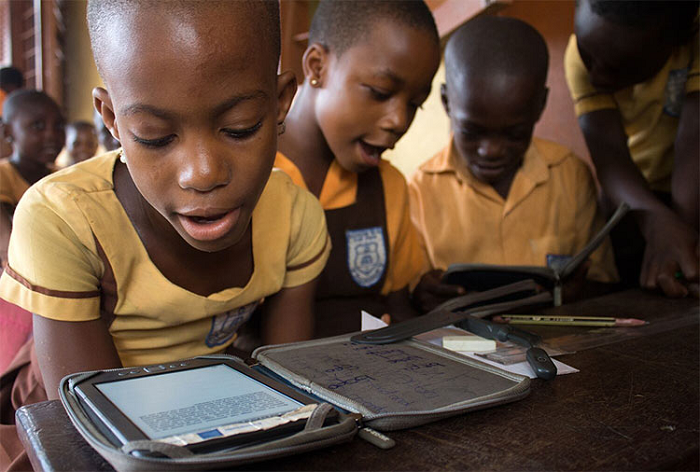
USAID/GES reading movement in basic schools must succeed
The USAID Partnership for Education (Learning) and the Ghana Education Service (GES) have planned to roll out a reading agenda aimed at encouraging the use of local languages in 100 districts in the country.
The initiative, which the sponsors call a movement or an agenda, is targeted at Kindergarten Two to Primary Two pupils to help improve learning outcomes between 2017 and 2019.
There are many reasons USAID has decided to sponsor the programme, key among them being that “findings consistently show that learners benefit from using their home language in education in early grades”.
According to the 2014 and 2015 Early Grading Assessment, 50 per cent of Ghanaian children in Primary Grade Two struggled to read a single word.
Professor Angelina Kioko of Kenya has argued that using the mother tongue in early education leads to a better understanding of the curriculum content and to a more positive attitude towards school.
She says learning does not begin in school — it starts at home in the learner’s home language. Although the start of school is a continuation of this learning, it also presents significant changes in the mode of education.
While various findings have established clearly that the present use of the English Language as the medium of instruction is not yielding the desired results, our educational authorities find it difficult to have a strong language policy in favour of the mother tongue.
We know that various factors, such as the lack of teachers to handle local languages and textbooks, have hampered the implementation of the shift in policy.
The reasons for the downward slide in the standard of education cannot be far away. We have falsely accepted that using English as the first language in schools will give many children a head start in education. This must be palpably false.
This is so because it is a fact that a crucial learning aim in the early years of education is the development of basic literacy skills: reading, writing and arithmetic.
The Daily Graphic finds the partnership to promote reading in basic schools across the country a step in the right direction, especially so when literacy skills are low not only among children but even among university students and graduates.
We have a selfish interest to be excited about the USAID and GES partnership. The Graphic Communications Group Limited is in the business of reading and if the reading habit among students and the larger public dies, our newspapers will also die.
Newspapers, and for that matter literary works, thrive only when there are large groups of people interested in reading to gain knowledge and enlightenment. Books and other publications provide the platform for people to gain new insights into developments around them.
The USAID and GES are encouraging adults to support the reading movement by donating books and organising reading clinics to encourage schoolchildren to read.
The Daily Graphic thinks a lot depends on the GES, the Ministry of Education and, indeed, the government to put in place the enabling environment to encourage pupils to develop reading skills early in order to have a head start in education and also to facilitate the success of the USAID and GES movement.
We have no choice but to support the reading agenda, as there is no doubt that starting school in the learner’s mother tongue does not delay education but leads to faster acquisition of the skills and attitudes needed to better educational outcomes.
